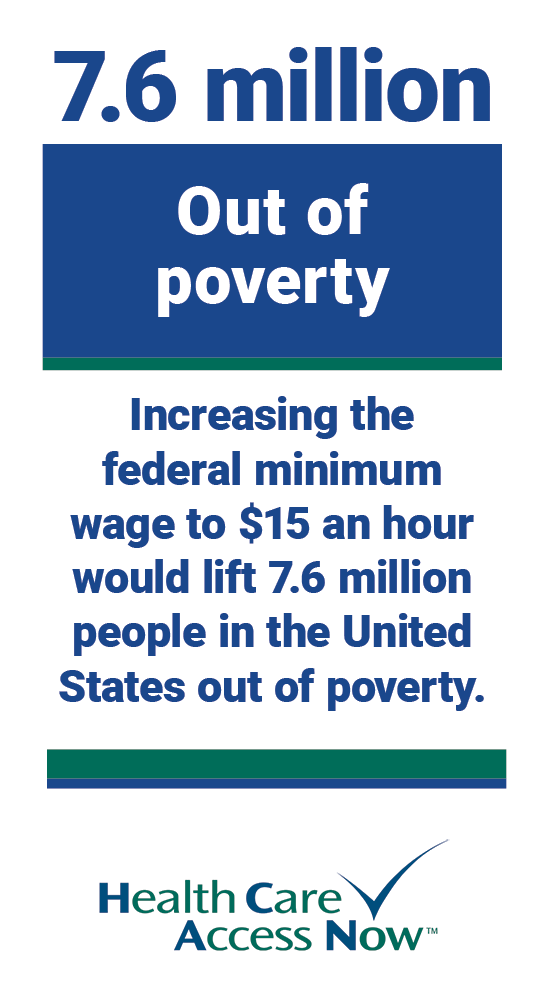How low wages perpetuate poverty


When someone receives a low wage for their labor, that often translates into living in poverty. Seems like common sense, right?
Yet, the belief persists that certain jobs—fast food, wait staff, childcare workers, and housekeepers, as examples—should be paid poverty wages. Often, that’s linked to the idea that these are part-time jobs performed by young people. While it’s true that those types of jobs often act as an entry into employment, teens make up less than a quarter of the fast food workforce, for example.
The restaurant industry has been experiencing labor shortages in recent years, which has been attributed to people “leaving the industry in pursuit of other opportunities that may include better working hours, higher pay, less safety risks, and less customer harassment.” However, not everyone has the option to just pick up and leave a low paying job for a better one.
The poverty cycle
Children who grow up in poverty are more likely to remain in poverty throughout their lives. “[L]ow-income children who grow up in regions with large middle classes are likely to become more financially successful than those who do not.”
Cap20 cites research showing that “[c]hildren of low-income parents tend to grow up to earn lower incomes themselves, while children of affluent parents tend to remain affluent. More than 4 in 10 children who start at the bottom stay at the bottom, and close to 4 in 10 children who start at the top stay at the top.”
One reason for people who grew up in poverty being unable to achieve economic mobility is school quality. When children attend under-resourced schools, they don’t have the same opportunities to learn and advance their education and are then less likely to pursue higher education. “High-poverty high schools sent 46 percent of 2020 graduates to college [in the fall of 2020], compared with 70 percent of graduates from low-poverty schools.”
A college degree greatly impacts earning potential: “Typical earnings for bachelor’s degree holders are $36,000 or 84 percent higher than those whose highest degree is a high school diploma.”
What would increasing wages do?
The Robert Wood Johnson Foundation’s research shows that “[i]ncreasing the federal minimum wage to $15 an hour would lift 7.6 million people in the United States out of poverty.” This increase would affect around 56 million workers (about one-third of the work force), raising their annual income by around $5,600.
While raising the minimum wage isn’t a silver bullet solution, it could make a big difference for a lot of people. More money means making fewer tough choices—skipping meals or selecting cheaper, less nutritious food; or only going to the doctor when absolutely necessary instead of maintaining health through preventive care (as examples)—leading to a healthier lifestyle.




